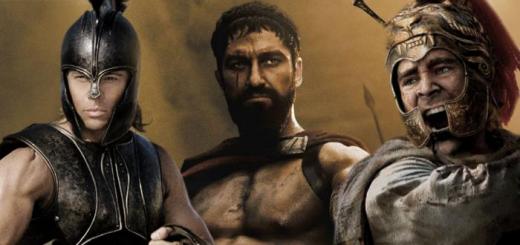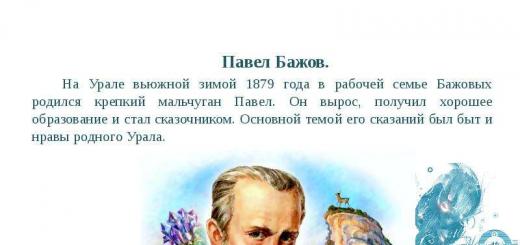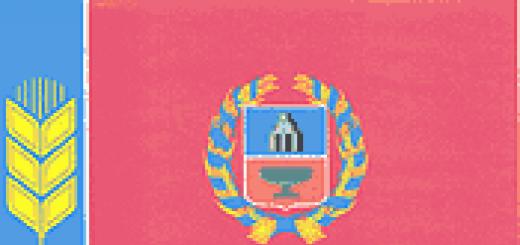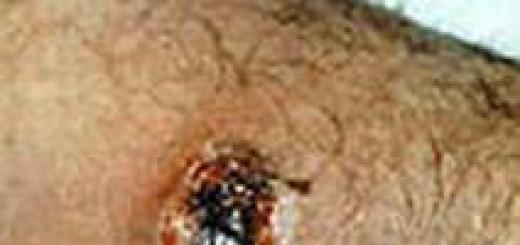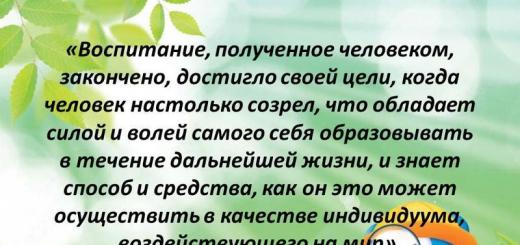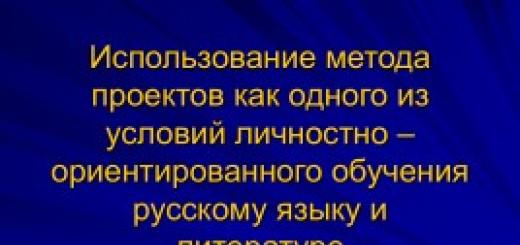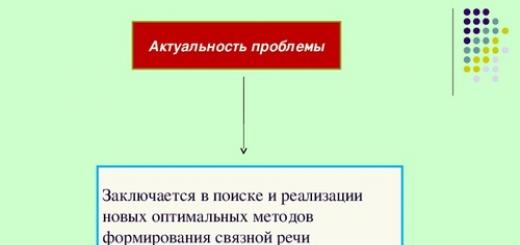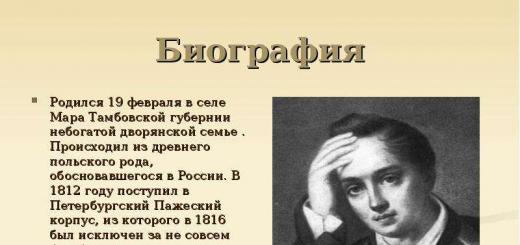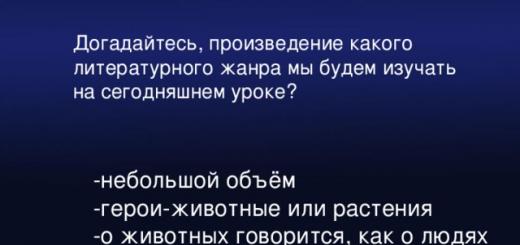Class:Grade 10
Lesson topic: Preparation for writing a competitive essay-reflection on the topic “A person is defined by what he is like alone with his conscience” based on the book by V. F. Tendryakov “Bread for the Dog” (for the 45th anniversary of the creation of the work)
Lesson Objectives:
Cognitive: practicing semantic reading skills, analyzing a work, putting forward hypotheses and their justification
Practical: writing an argumentative essay on a given topic
General subject e:
Bring up:
interest in the subject being studied during the analysis of the work and preparation for writing an essay-reasoning
linguistic personality of a student developing different types competence
moral qualities of students (awareness of such a moral category as “conscience”)
the ability to develop certain views on moral concepts, emotional attitude towards them
Develop:
memory (visual, auditory, logical, mechanical, associative, figurative), logical thinking ( mental operations: analysis, synthesis, comparison, generalization, classification, systematization); speech, types of speech activity (listening, speaking, reading, writing), abilities, will, emotions.
Shape: ability to independently replenish knowledge when referring to reference literature.
6 .Lesson Objectives:
Continue work on developing students’ speech
Develop Creative skills students
Strengthen the ability to write and format a reflective essay
Promote the development of logical thinking, oral, monologue, dialogic speech
Activate the emotional and moral sphere of schoolchildren’s personality
7. Planned educational results:
Students will learn to give a moral and ethical assessment of the actions of the heroes of the work
Students will be able to clearly set educational goals and plan (create a sequence of actions) to achieve this educational task, evaluate the intermediate and final results of your activities, evaluate the level of mastery of the material
Improve the skill of semantic reading, establishing cause-and-effect relationships, building a logical chain of reasoning
Will be able to plan educational cooperation with peers, express their thoughts fully and accurately in accordance with the task
Lesson stepsIntroductory (organizational and motivational) stage
Teacher: Guys, you have read V. F. Tendryakov’s story “Bread for the Dog.” The story takes place in the very terrible years life of our country - 1930s. Years of great collectivization and great famine. Today we will try to reflect on the work we read. Do you think the ability to pose a problem and reason about it is an important skill for you? Is this work familiar to you? Why is she interesting to you? What's new? What does it even mean to “reason”?
Children's answers. For self-test, refer to the “Dictionary of the Russian Language” by S. I. Ozhegov.
Teacher: Let's go back to V.F. Tendryakov's story “Bread for the Dog.” What impression did the story make on you? Read out those passages that particularly shocked you?
Reasoned answers from children.
Main (information and analytical) stage
Teacher: To write an argumentative essay, what should you do first? Children's answers. That's right, you first need to identify the topic on which you will subsequently discuss. What theme do you identify in this story that you would like to reflect on?
Children's answers.
Students look at the problem of human conscience.
Teacher: Do you think the words of O. Volkov: “A person is determined by what he is like alone with his conscience” can be defined as the topic of our essay?
Children's answers.
Teacher: To talk about such an important moral concept as “conscience,” let’s use the syncwine technique.
The task is given to compose a syncwine with the word “conscience”. Work in pairs. Reading created syncwines. Discussion.
Teacher: Let's turn to explanatory dictionary S. I. Ozhegova.
Reading a dictionary entry. “A sense of moral responsibility for one’s behavior before the people around us and society.” Comparison with the proposed interpretation options of this word in syncwines.
Teacher: Try to explain your understanding of the expressions:
Live according to your conscience
Sick conscience
Remorse
Teacher: Have you ever experienced remorse?
Children's answers.
Teacher: Let's try to answer a number of questions raised in the story. You worked in groups in the last lesson. What questions would you like to ask your comrades?
Group I:
1. Why does he suffer? main character story?
2. How does he manage to experience the pangs of conscience? (text: “I think that conscience tends to wake up more often in the body of well-fed people than hungry people. A hungry person is forced to think more about himself, about getting his daily bread, the very burden of hunger forces him to selfishness. In a well-fed person more possibilities look around, think about others" (Tendryakov V.F. Bread for the dog, M. Education, 1983, p. 5)
3. What solution is the main character trying to find from the current situation?
4. How do you understand the words: “ Isn’t it dangerous to openly lend a helping hand?”(Tendryakov V.F. Bread for the dog, M. Education, 1983, p. 7)
Group II:
1. What would you do if you were Volodya Tenkov? Would your conscience torment you in this situation?
2. Why, when he gives the bread to the elephant, does he describe his feelings like this? : “I was happy all day. Inside, in the hypochondrium, where the soul lives, it was cool and quiet.”(Tendryakov V.F. Bread for the dog, M. Education, 1983, p. 11)
Do you understand his feelings?
3. Why did pity for enemies arise in the child’s soul?
4. What mental suffering does the child experience? Text: " Probably, my hysteria was perceived by the goons as a complete cure for boyish pity.”(Tendryakov V.F. Bread for the dog, M. Education, 1983, p. 13)
III group
1. How do you understand the words: “ I didn’t feed a mangy dog with pieces of bread, but my conscience”?(Tendryakov V.F. Bread for the dog, M. Prosveshchenie, 1983, p. 14)
2. Comment on the words: “... my conscience continued to become inflamed, but not so much, not life-threatening.”(Tendryakov V.F. Bread for the dog, M. Education, 1983, p. 16)
3. What would happen to your conscience if you were in the boy’s place?
4. Were there any heroes among the adults who could not withstand the pangs of conscience? What happened to them? Do you understand their actions?
Let's try to evaluate the behavior of the main character in relation to the levels of moral self-regulation of the individual proposed by G. K. Selevko. Let's remember them. 1 level - receiving rewards or avoidance of punishment. Level 2 – taking care of public opinion(seem). Level 3 – submission to social norms (obey). Level 4 – internal moral principles (be yourself). (Selevko G.K. Manage yourself M., Public education, 2002, p.50-51)
Children's answers.
Of course the boy is on top level: He remains himself. Rate yourself according to this gradation, imagining that you are in the place of the main character of the story.
Teacher: And now, guys, try to express your thoughts in an essay - an argument on the topic “A person is determined by what he is like alone with his conscience,” based on personal impressions from the story “A Dog’s Share of Bread” by V. F. Tendryakov.”
Let us recall the compositional scheme of an essay-reasoning.
Proof
Use support words and expressions for reasoning: Conscience is... Judge for yourself... Because... Why does this happen... Probably because...
Writing essays-reasonings.
Final (evaluative-reflective) stage
Teacher: Edit your text using Instructions for writing an essay- reasoning. (See Attachment). Reading works. Discussion. (Truntseva T. N. How to learn to write essays-reasonings, Literacy, 2008, pp. 29-30)
Teacher: Once V.F. Tendryakov said: “The art of living does not fit into any stencils. It is impossible to give ready-made recipes. I'm looking for them myself "(Tendryakov V.F. Memoirs, M. Education, 1984, p. 123) Will the recipe for life that the main character of the story “Bread for a Dog” found for himself be useful to you in your life? Is this the right recipe?
Did you like the lesson?
Was it difficult for you to cope with the task of the lesson?
What conclusion can you draw from the lesson?
Application
Memo for writing an argumentative essay
What general question does the essay answer?
What is the topic of the essay (describes the subject, you narrate or reason why this event occurs).
At the very beginning of the text, did you state the problem that you want to explore, did you ask a question that you want to answer?
Make a compositional diagram of reasoning ( thesis-proof-conclusion), highlight its components with colored paste.
You provided evidence for your assumption, statement ( 2.3 or more). Use a pencil to insert the words because, since at the beginning of each proof.
Do you end your argument with a conclusion? Used output constructs that's why and that's why?
Check for the presence of cause-and-effect structures why because.
Did you use statements as evidence? authoritative authors, proverbs, sayings?
Expression of conviction is the main tone of your reasoning, is it so?
Re-read your work. Read it to your comrades: are you convinced
Literature
1. Plenkin N. A. Lessons in speech development, grades 5-9, M. Prosveshchenie, 1995
2. Ozhegov S.I. Dictionary of the Russian language, ed. Shvedova N. Yu., M. Russian language, 1987
3. Tendryakov V.F. Stories, M. Education, 1993
4. Tendryakov V. F. Memoirs, M. Education, 1984
5. Truntseva T. N. How to learn to write an argumentative essay, Literacy, 2008
6. Selevko G.K. Manage yourself, M. Public education, 2002.
V. Tendryakov’s story “Bread for the Dog” is based on the author’s memories of a difficult childhood, on which all the horrors left their dark imprint Stalin era. Eternal poverty and hunger, which were accompanied by ideological persecution, became an invariable attribute of life ordinary people that time.
This is probably why the author does not use literary techniques in the work that give artistic color to his story, because it is enough to simply present dry, reliable facts to evoke a wave of deep emotions and experiences in the reader. Using the example of residents of one village, V. Tendryakov showed the life of the entire state.
Action of the story
The story takes place in a Russian village adjacent to railway. Exiled dispossessed people, who were sent to Siberia for disobedience to state decrees on collectivization, are walking through the village in a gloomy stream.
In front of local residents, destitute people, tired from a long journey, are dying right on the outskirts of the village. Residents of the village are trying to avoid this place, because even with a great desire to help the dying, they could not do this: it could be regarded as providing assistance to enemies of the state.
The dying man clutched the tree with his hands, as if this was his last opportunity to stand on earth, and slowly descending down, cursed the state and the people, because of whom he was so dishonestly losing his life.
Small children looked with amazement at his death; later this generation would carry this soul-stirring feeling of injustice and pity throughout their entire lives.
The images of the main characters are the torment of human conscience
The main character of the story is a little boy who was ashamed to be fed, while exiles were dying of hunger outside his window. He often gave them the remains of his food, but when the number of people in need and begging continually increased, the little child had an emotional breakdown: he drove people away from his yard, shouting after them not to return to him.
Kurkuli left, but the overwhelming feeling of shame and pity remained in my soul little man. He perceived his act as a manifestation of the inhumanity that was inherent in people who sent innocent people into exile.
A dog that accidentally wandered into his yard helped heal the boy’s conscience. The child begins to feed the dog bread, in order to at least somehow atone for the feeling of guilt that he could not help people, but at least takes care of the same unfortunate and lost living creature.
This man was less fortunate than the boy; he did not meet a dog that he could feed. The only way out for the boss to heal his conscience was suicide.
After reading the story, the reader is left with a feeling of moral and spiritual devastation for a long time. We seem to experience all the horrors of that time together with the heroes. Reading the story, it is difficult to believe that such events took place in the civilized twentieth century, and not at the dawn of the Middle Ages, but this is our history, which is the sacred duty of everyone to remember.
The story “Bread for the Dog” by Tendryakov was written in 1970. It is based on the memoirs of a writer whose childhood was in the difficult post-revolutionary period. It was a cruel, unmerciful time, shown through the prism of children's perception.
To better prepare for a literature lesson, we recommend reading online a summary of “Bread for a Dog” chapter by chapter. A retelling of the book will also be useful for the reader's diary.
Main characters
Volodya Tenkov- narrator, ten-year-old boy, kind, simple-minded
Other characters
Volodya's father- hero of the revolution, an honest, decent man.
Vanya Dushnoy- a policeman, a person indifferent to the suffering of others.
Abram- a groom whose duties include collecting and removing dead kurkuls.
Dybakov- First Secretary of the Party, a tough, cynical person.
The events take place in the summer of 1933, when “those who were no longer considered human” began to appear in small villages. These were dispossessed wealthy peasants, “kurkuls”, exiled to Siberia, but never reaching their destination.
From terrible hunger, some of them looked like “skeletons with huge, meekly burning eyes,” others were so bloated that it seemed “the skin, blue from tension, was about to burst.” Left to the mercy of fate, they died quietly in a small park in front of the village residents. Policeman Vanya Dushnoi made sure that they “did not crawl out of the park - neither onto the platform, nor onto the path.”
Adults tried to avoid this terrible place, but it was impossible to keep children from their “animal curiosity.” With fear, pity and disgust, they watched the martyrdom of the Kurkuli. The station chief, looking at these children, did not understand what kind of people they would grow up to be if they were already “admiring death.”
The narrator is surprised how he, being a kind, impressionable boy, “didn’t get sick or go crazy” at the sight of people dying of hunger. But there is an explanation for this - he has already managed to “somehow get used to it, calloused” to human suffering. Being the son of a responsible employee, he did not know what hunger was, but he was surrounded by people who were ready to undergo unimaginable humiliations for a piece of bread.
Thin, emaciated people in the village were called “skinny men, those with dropsy - elephants.” One day Volodya “witnessed an accidental conversation between Dybakov and a schoolboy.” Having stumbled upon a dying man lying in the dust, Dybakov “was about to go around the random relics,” but before his death he decided to talk to the boss. He could not understand why he was doomed to death - “Is it really because he had two horses?” , to which he received a cold affirmative answer.
The pictures he saw deprived Volodya of his appetite, and he, unlike younger brother, began to eat poorly - “nausea rolled up in my throat,” which made my mother very angry. His soul knew no peace - the boy felt sorry for the people forced to eat bark from trees, but he understood that these were kurkuli, enemies of the people, and were not worthy of pity.
In the mornings, the groom Abram went to the birch forest near the station to “collect carrion” - dead kurkuls. He did not touch the living, but put the corpses “in a cart, like wood logs.” Then ordinary village life began.
It is very difficult for Volodya to realize that he is one of the few who is not starving. The boy made the decision to share food with “the most, the most hungry, even if he is the enemy.” To do this, just go to the birch park and hold out your hand with bread - you certainly can’t go wrong there. But he understood that he had to act furtively, secretly from everyone.
Volodya managed to hide from his mother the food that he did not finish during lunch. Having run into “one of the elephants wandering around the village,” Volodya handed him the remains of lunch and promised to bring more the next day. The boy was happy that he helped the man live another day.
The next day, Volodya noticed that a familiar elephant was sticking out near the gate. After waiting for his mother to leave, he got the unfortunate man some bread and potatoes. From the “elephant” the boy learned that Belch has no children.
The boy's father witnessed the conversation between Volodya and Kurkul. Volodya was very fond of and proud of his father, a hero of the revolution. He was desperately afraid that his father, having learned about his help to the enemies of the people, would accuse him of treason. But the father only said that the country does not have enough bread for everyone and “you can’t scoop up the sea with a teaspoon.”
Soon Volodya found himself “under complete siege” - near his house, having learned about the boy’s kindness, “shkiletniks” and “elephants” began to appear, begging for a piece of bread. When they surrounded Volodya in a tight ring and began to demand food, he became hysterical. This is how he was “completely cured of boyish pity.”
One day Volodya noticed a bald, thin dog with an empty gaze, and realized that he had found “the most unfortunate creature in the village.” The boy began to feed the dog bread, but he never took food from his hands - trust in the person was forever lost in him. However, Volodya did not expect gratitude from the dog; it was enough for him that he was supporting someone’s life and thereby earning his own “right to eat and live”...
Conclusion
The book by Vladimir Tendryakov covers moral issues: conscience, humanity, mercy, the moral responsibility of each person to society and to himself.
After reading brief retelling“Bread for a Dog” we recommend that you familiarize yourself with the writer’s work in its full version.
Story test
Check your memorization of the summary content with the test:
Retelling rating
Average rating: 4.9. Total ratings received: 258.
In the text proposed for analysis, the famous Russian writer V.F. Tendryakov raises the problem of bad deeds.
The author interprets and reveals this problem in his own way. The writer tells that he had to commit bad deeds many times: he “lied to the teachers,” and also “gave his words not to fight and did not restrain him,” but his latest act made him think about what he had done before. Despite the fact that each soldier in the company was entitled to a certain amount of bread, he decided to steal more, because “he had not eaten anything for five days,” but his colleagues quickly noticed the loss. Having experienced a huge herd and humiliation for what he had done, the author changed his view of life and no longer stole, he even tried to gain self-respect by doing good deeds.
V.F. Tendryakov expresses his point of view clearly and unambiguously. He believes that bad deeds make a person ugly and ugly, however, in order to realize this, a person must feel all the shame and humiliation for what he has done.
I completely share the author's position. Indeed, we all do something bad during our lives, someone is tormented by their conscience, and he immediately tries to apologize to others, others get used to it and therefore do their vile deeds again and again. It all depends on the person himself and whether he has a conscience or not.
To confirm my opinion, I would like to cite as an example the work of M. Gorky “Chelkash”, in which the main character, Grishka Chelkash, having gone to “deal” with a young guy named Gavrila, gets into a fight with him over the proceeds for the work done. Gavrila was very young and inexperienced, seeing a large amount of money in the hands of Chelkash, he decides to rob him, taking all the proceeds. The author in his work showed how terrible the actions of people who have succumbed to human vices can be.
F. M. Dostoevsky in his work “Crime and Punishment” shows the beggar Rodion Raskolnikov, who killed two innocent people and robbed an apartment. He didn't think about morality, he thought about his problems clouding his mind. After what he had done, Rodion realized his mistakes, realized that he had committed terrible acts in order to test his “theory”.
Thus, people who have committed a bad deed sooner or later come to their senses, because every person has such a feeling - conscience. It helps a person look at himself from the outside and understand what he has done wrong. However, some simply need to feel shame and humiliation for what they have done, because this is the only way they can see how “ugly and ugly” they have become from the outside.
Original text.
We all spent a month in the reserve regiment beyond the Volga. We, that’s true, are the remnants of units defeated beyond the Don that reached Stalingrad. Someone was again thrown into battle, and we were taken to the reserve, seemingly the lucky ones, some kind of rest from the trenches. Rest... two lead-heavy crackers a day, muddy water instead of stew. The departure to the front was greeted with joy.
Another village on our way. The lieutenant, accompanied by the sergeant major, went to investigate the situation.
Half an hour later the foreman returned.
- Guys! - he announced with inspiration. - We managed to knock out: two hundred and fifty grams of bread and fifteen grams of sugar per snout!
Who will receive bread with me?.. Come on! “I was lying next to him, and the foreman pointed his finger at me.
A thought flashed into my mind... about resourcefulness, cowardly, disgusting and sad.
I laid out a raincoat right on the porch, and loaves of bread began to fall on it—seven and half more.
The foreman turned away for a second, and I shoved half a loaf under the porch, wrapped the bread in a raincoat, and slung it over my shoulder.
Only an idiot can expect that the foreman will not notice the disappearance of a loaf cut in half. No one touched the resulting bread except him and me. I am a thief, and now, right now, in a few minutes it will become known... Yes, to those who, like me, have not eaten anything for five days. As I!
In my life I have done bad things - I lied to teachers so as not to give them a bad grade, more than once I promised not to fight and did not keep my word, once while fishing I came across someone else’s tangled line on which a chub was sitting, and I took it off the hook... But every time I found an excuse for myself: I didn’t learn the task - I had to finish reading the book, I fought again - so he climbed in first, took a chub from someone else’s line - but the line was carried away by the current, mixed up, the owner himself would never have found it...
Now I didn't look for excuses. Oh, if only I could go back, get the hidden bread, and put it back in the raincoat!
From the side of the road, soldiers began to rise towards us with an effort - every bone ached. Gloomy, dark faces, bent backs, drooping shoulders.
The foreman opened his raincoat, and the pile of bread was greeted with respectful silence.
It was in this respectful silence that a puzzled voice was heard:
- Where?.. There was half a loaf!
There was a slight movement, dark faces turned towards me, from all sides - eyes, eyes, eerie alertness in them.
- Hey, you! Where?! I'm asking you!
I was silent.
An elderly soldier, bleached blue eyes, wrinkled cheeks, a gray chin with stubble, a voice without malice:
- It will be better, boy, if you admit it.
There is a grain of strange, almost implausible sympathy in the voice of the elderly soldier. And it is more unbearable than swearing and amazement.
- Why talk to him! “One of the guys raised his hand.
And I involuntarily twitched. And the guy just adjusted his cap on his head.
- Don't be afraid! - he said with contempt. - To beat you... To get my hands dirty.
And suddenly I saw that the people around me were amazingly beautiful - dark, exhausted from the campaign, hungry, but their faces were somehow faceted, clearly sculpted. Among beautiful people, I am ugly.
There is nothing worse than feeling unable to justify yourself to yourself.
I was lucky, in the signal company of the guards regiment where I ended up, there was no one who could see my shame. With small actions over and over again I won self-respect - I was the first to climb a broken line under heavy fire, I tried to lift a reel with a heavier cable onto myself If you managed to get an extra pot of soup from the cook, you didn’t consider it your spoils, you always shared it with someone. And no one noticed my altruistic “deeds”; they thought it was normal. And this is what I needed, I did not claim exclusivity, I did not dare to dream of becoming better than others.
I never stole again in my life. Somehow I didn’t have to.
“Human” and “subhuman”... Where is the line between them? What is she like? Where does it take place? The issues are controversial and complex. One thing can be said - the line is thin, very thin, and everyone has their own. It is enough for one to experience envy, jealousy, and he loses his human image, for another - fear, hunger, poverty, or, conversely, to plunge into luxury, for a third - an animal grin from birth. There are many tests. Hence the great variety of destinies. Some cannot stand it, give up and die, physically or spiritually - there is no difference, moreover, the death of the “soul” is much more terrible. Others also seem to cave in, but tirelessly continue to search for the saving straw, and find it, because it cannot but exist... Tendryakov’s story “Bread for the Dog” is precisely about this thinnest line...
Hungry post-revolutionary Russia
Post-revolutionary Russia. What words can you use to describe it? What colors can be used to depict the hunger and horror that reigned everywhere? Only black ones! But black without white makes no sense, just like white without black. Therefore, Vladimir Tendryakov in his work “Bread for the Dog” (a brief summary follows), of course, along with dark tones, uses all shades of light. There are not as many of them as we would like, but they exist, which means there is hope, love, and justice...
“Bread for the Dog”: a summary of the work by V. Tendryakov
The year was 1933. Summer. Small Russian town. Smoke-stained station building. Not far from it is a peeling fence, behind it is a through birch garden, and in it, on the dusty grass, are those who have not been considered human for a long time. In fact, they had documents, worn out, but identifying them: last name, first name, patronymic, year of birth, for what he was convicted and where he was sent... But this no longer bothered anyone, just like what they eat, drink, where they live, who they work for. They are dispossessed men, dispossessed people, enemies of the people, or, as they were called, “kurkuls,” which means they have fallen out of the ranks of the people.

However, they did not look and behave like people either. Exhausted by hunger and disease, some seemed like dark-skinned skeletons with huge empty eyes, others looked like “elephants” bloated from dropsy with skin bluish from tension. Some gnawed the bark of trees or ate garbage from the ground, others lay in the dust, moaning, staring blankly at the sky. But most of all, those who had already left the world of the living resembled people. They lay calmly, peacefully. However, there were “rebels” among them. When they took their farewell sigh, they were overcome by real madness - they stood up, tried to shout out murderous poisonous curses, but only wheezing came out, foam bubbled, and they fell silent, forever... The story “Bread for the Dog” does not end with this episode.
The main character of the story
Adults tried to avoid this gloomy place. The kids didn’t come in either, they were afraid, but some kind of “animal” curiosity took over, and they climbed onto the fence and watched what was happening from there. They were choked by fear, disgust, they were exhausted from hidden, and therefore unbearably acute, piercing pity, but they continued to look with all their eyes. “What will grow out of such children? They admire death...” said the station chief, wandering along the platform on duty.

Among those children was a ten-year-old boy, Volodka Tenkov, the main character of the story “Bread for the Dog.” Analyzing the work will help you better understand the theme, idea and problems of the work. The story unfolds as a series of memories, therefore, the narration is told in the first person - on behalf of this boy. As an adult, he was surprised for quite a long time and could not understand how he, as a child, vulnerable, impressionable, with a fragile psyche, did not get sick from the darkness and horror. But then he recalls that by that time his soul was already “calloused.” Sooner or later a person gets used to everything and comes to terms with it. So his soul was accustomed to seeing pain, suffering, public humiliation of “tidy” people from hunger alone. However, are you used to it? No, rather, it has developed its own “protective layer”. She suffered and suffered endlessly, but continued to breathe deeply, empathize and look for saving ways out of hopelessness.
It's a shame to be full
At first, Volodka tried to honestly share his breakfast - four pieces of bread - with his classmates. But there were too many willing and “suffering” people - hands reached out from all sides. The bread fell, and several feet, out of impatience, without any malicious intent, walked over the pieces and crushed them...

Volodka was tormented, but at the same time did not let him go crazy by one more thought: those who died in the birch garden were enemies. What do they do with enemies? They are destroyed, there is no other way, because a defeated enemy is still an enemy: he will never forgive and will definitely sharpen the knife behind his back. On the other hand, can one who gnaws the bark of a birch forest be considered an enemy? Or are the enemies those old people and children who died of hunger in dispossessed villages? He found his answer to these questions: he cannot “absorb” his “dishes” alone, sharing with someone is simply necessary, even if he or she is an enemy... “Bread for the Dog,” a summary of which is given in This article is a story about which are terrible, but without which one dies.
Who's the hungriest?
He secretly did not finish eating what was served to him for lunch or dinner, and honestly took the “thieves’” food saved to the one who was, in his opinion, the hungriest. It was both easy and difficult to find such a person. Everyone in the village was hungry, but who was the most hungry? How to find out? You can't go wrong...

He gave his “pocket-burning” remains of lunch to one “uncle” with a pale, swollen face, and decided to do this every day. He succeeded in making one person “happy,” but over time the number of beggars began to grow inexorably. Every day a great multitude of them gathered near his house. They stood all day and tirelessly waited for his exit. What to do? There is not enough strength to feed more than two. But my father said that it was impossible to scoop up the sea with a teaspoon... And then he had a breakdown, or, as he himself said, a “cure.” In an instant, his vision darkened, and from somewhere in the depths of his soul, sobs beyond his control and a cry burst out: “Go away! Go away! You bastards! Bastards! Bloodsuckers! And they silently turned around and left. Forever.
V. Tendryakov: “Bread for the dog”, or “Food for the conscience”
Yes, he was cured of boyish pity, but what to do with his conscience? It is impossible to get rid of it, otherwise it will be death. He is full, very full, one might say, to his fullest. Probably, these products would be enough for five people to save themselves from severe starvation. He didn't save them, he simply ate their lives. These thoughts prevented him from eating or sleeping. But one day a dog came up to their porch. She had empty, “unwashed” eyes... And suddenly Volodka was overcome with steam as if in a bath: here it is - the most hungry and unfortunate creature in the world! And he began to feed her: every day he brought her a piece of bread. She grabbed him on the fly, but never approached the boy. The most devoted to man a creature on earth had never once trusted him. But Volodya didn’t need this gratitude. He did not feed the skinned dog, but his conscience. It cannot be said that the “food” offered was so pleasing to the conscience. She “fell ill” from time to time, but without the threat of death. The story doesn't end there. V. Tendryakov (“Bread for the Dog”) included another episode, very small, but very effective, one might say, an emotional “total” from the author.
In that same month, the same station chief walking along the platform committed suicide. “Human” and “subhuman”: he crossed this fine line and could not stand it... How did he not think of finding some bald little dog for himself, so that he could tear something away from himself and share it every day? This is the truth!
Once again I would like to remind you that the article is dedicated to the story “Bread for the Dog” by V. Tendryakov. Summary cannot fully reflect that emotional anguish in the soul of a little boy, describe his fear and at the same time silent protest against the existing world order. Therefore, reading the work in in full simply necessary.


